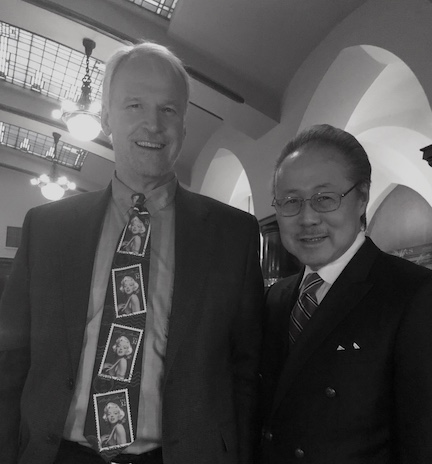
My father in law needed a caregiver when he moved from California to Oregon.
Instead of home care, he went to an assisted living home.
To mixed results.
One day we learned he lost a tooth during assisted toothbrushing.
Another day we learned he fell in his room after an hour or two on the toilet.
Finally we visited him in the hospital after he inhaled food that wasn’t mixed correctly for a Parkinson’s patient.
He was on the way out, blue lips and fingernails, machines and monitors humming away.
And his wife sitting bedside feeling every moment with him and looking like she was fading also.
It was hard to watch, so I asked the doctor if I could bring home for the endgame of his life. And that’s what happened.
Except he flourished outside assisted care. He gained twenty pounds, started talking, and joined the table for family dinner.
It wasn’t so much a miracle, just consistency. He needed more than he got at one place, then got more than he needed at my place.
Some caregiver advice I ignored:
Elderly people in his condition often have spastic bladders and feel the urge to urinate. Instead of getting him to the bathroom every time, let him go in an adult diaper.
What happened instead:
Every time he felt the need, I got him out of his lift-chair and headed to the can.
Afterward we took walks around the house.
Research showed Parkinson’s responded to activity, so we walked it out, then sat back down to shadow box.
I worked his arms and legs and mind and he sharpened up.
To be sure of his mental state I talked to him as if we lived in the 50’s, 60’s, 70’s. I noted events of those days until he corrected me by asking what the heck I was talking about.
I learned it was called ‘registering.’ We grounded each day based on his outlook. If he wanted to live in another time, we made it happen until he updated himself.
Since he was my father in law, he expected something goofy from the man who dared marry his step-daughter. And I never disappointed.
The real caregiver miracle
People in decline based on anything rely on routine and order. It may sound boring, but they’ve already lived exciting lives.
From past conversations I knew my father in law had been everywhere, done everything, flown every airplane, driven every care.
All of his stories came before Parkinson’s and dementia set in, so I had a broad canvas to work with.
Maybe I was a space shuttle pilot, a deep sea explorer, or great adventurer just like him. When I tried out new stories, some of the same ones he’d told years earlier, except I took his place as the hero, he would make corrections.
Timing was everything. Meds on time, food on time, exercise on time. There was no time frame for mental exercise because it was ongoing.
For quite a while I harbored bad feelings about assisted care. Then one morning after I brushed his teeth, he spit out a gold cap; during one of our walks, he with a walker, me guiding with one hand on his walker, the other arm around his waist, he collapsed and fell.
It made me feel like less of the heroic caregiver I tried to be.
The picture cleared up. Old guys get loose teeth that fall out; and they take an unexpected dive now and then.
To be fair, I had one guy instead of twelve to look after. Family caregiver is a job, but institutional caregiving is a calling. Being surrounded by aging people in distress is a hard day every day, but some people have what it takes.
One was enough, more than enough. If you find yourself making a choice to do it, or not do it, consider this:
A family caregiver role makes you the nicest you that you’ll ever be.


